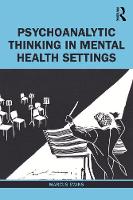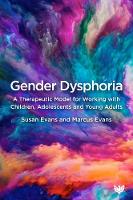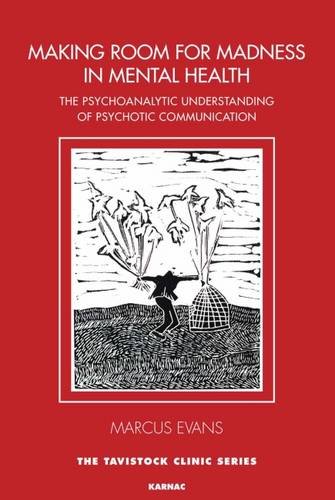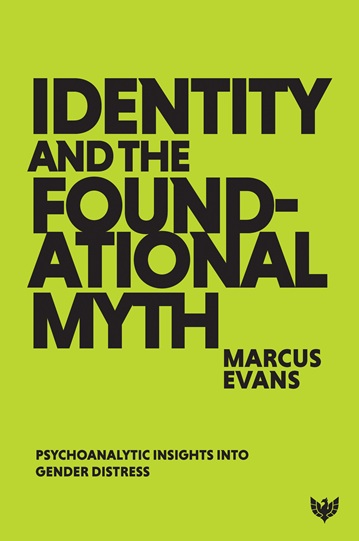Psychoanalytic Thinking in Mental Health Settings

Book Details
- Publisher : Routledge
- Published : November 2020
- Cover : Paperback
- Pages : 142
- Category :
Psychoanalysis - Catalogue No : 95350
- ISBN 13 : 9780367567385
- ISBN 10 : 9780367567
Our Customers Average Rating
Read all reviews (1)





This book demonstrates the use of psychoanalytic thinking in front-line mental health settings and aims to make an approach to working with emotional and mental disturbance available to a wide range of clinicians within psychiatric and other mental health settings.
Rooted in the author's extensive clinical experiences, the approach explored in this book applies psychoanalytic thinking and discusses this in relation to the mental health conditions regularly encountered in psychiatric settings, such as Schizophrenia, Manic Depression, Psychotic Depression, Anorexia, Deliberate Self Harm, and Personality Disorder. The book therefore provides valuable and practical ways of working with these difficult, complex, and problematic conditions. It further makes sense of the relationships and emotions encountered when working in these settings and introduces possibilities for more effective and rewarding ways of working, including a model of support through supervision, reflective practice, and clinical discussion.
Illustrated by clinical examples from more than four decades of experience in the field, this book is ideal for the interested mental health practitioner.
About the Author(s)
Marcus Evans is a psychoanalyst and fellow of the British Psychoanalytical Society. He was a consultant psychotherapist and mental health nurse with forty years of experience in mental health. He was head of the nursing discipline at the Tavistock & Portman NHS Trust between 1998 and 2018. He was also the lead clinician in the adult and adolescent service and one of the founding members of Fitzjohn’s Service for the treatment of patients with severe and enduring mental health conditions and/or personality disorders. He has written and taught extensively on applying psychoanalytic thinking in mental health settings. Karnac published the first, Making Room for Madness in Mental Health: The Psychoanalytic Understanding of Psychotic Communications, in 2016. His second book, Psychoanalytic Thinking in Mental Health Settings, introduces front-line mental health professionals to psychoanalytic thinking and was published by Routledge in 2020. The following year, his third book, Gender Dysphoria: A Therapeutic Model for Working with Children, Adolescents, and Young Adults, written with his wife, Susan, was published by Phoenix.
Customer Reviews
Our customers have given this title an average rating of 5 out of 5 from 1 review(s), add your own review for this title.
Sir Simon Wessely, Regius Professor of Psychiatry on 29/12/2020 08:24:30




 (5 out of 5)
(5 out of 5)
In his new book Psychoanalytic Thinking in Mental Health Practice Marcus Evans argues that a psychoanalytic approach, which offers a model for understanding the patient’s experience and puts the therapeutic relationships at the heart of mental health work, can help practitioners maintain a humane compassionate and thoughtful approach to their difficult work. Mental illness can interfere with the patient’s perception of reality, relationship with themselves and others, often leaving them feeling isolated in a fragmented state of mind which in turn interferes with their capacity to communicate their distress in a way that is easy to understand. Patients in disturbed states of mind need practitioners to listen to their experience, empathising with their fear, while not being overwhelmed.
In this book, the author who trained and worked as a registered mental health nurse before going on to qualify as a psychoanalyst uses clinical examples from front line mental health settings to illustrate the way psychoanalytic thinking can help mental health practitioners tune into their patient’s underlying preoccupations. In this way, it can help mental health practitioners offer a humane and compassionate home for mental illness.
You may also like
The Good Society and the Inner World: Psychoanalysis, Politics and Culture
Michael Rustin
Price £17.99
Work Discussion: Learning from Reflective Practice in Work with Children and...
Margaret Rustin
Price £34.99
Young Child Observation: A Development in the Theory and Method of Infant...
Simonetta M.G. Adamo
Price £41.99
Making Room for Madness in Mental Health: The Psychoanalytic Understanding of...
Marcus Evans
Price £35.99









